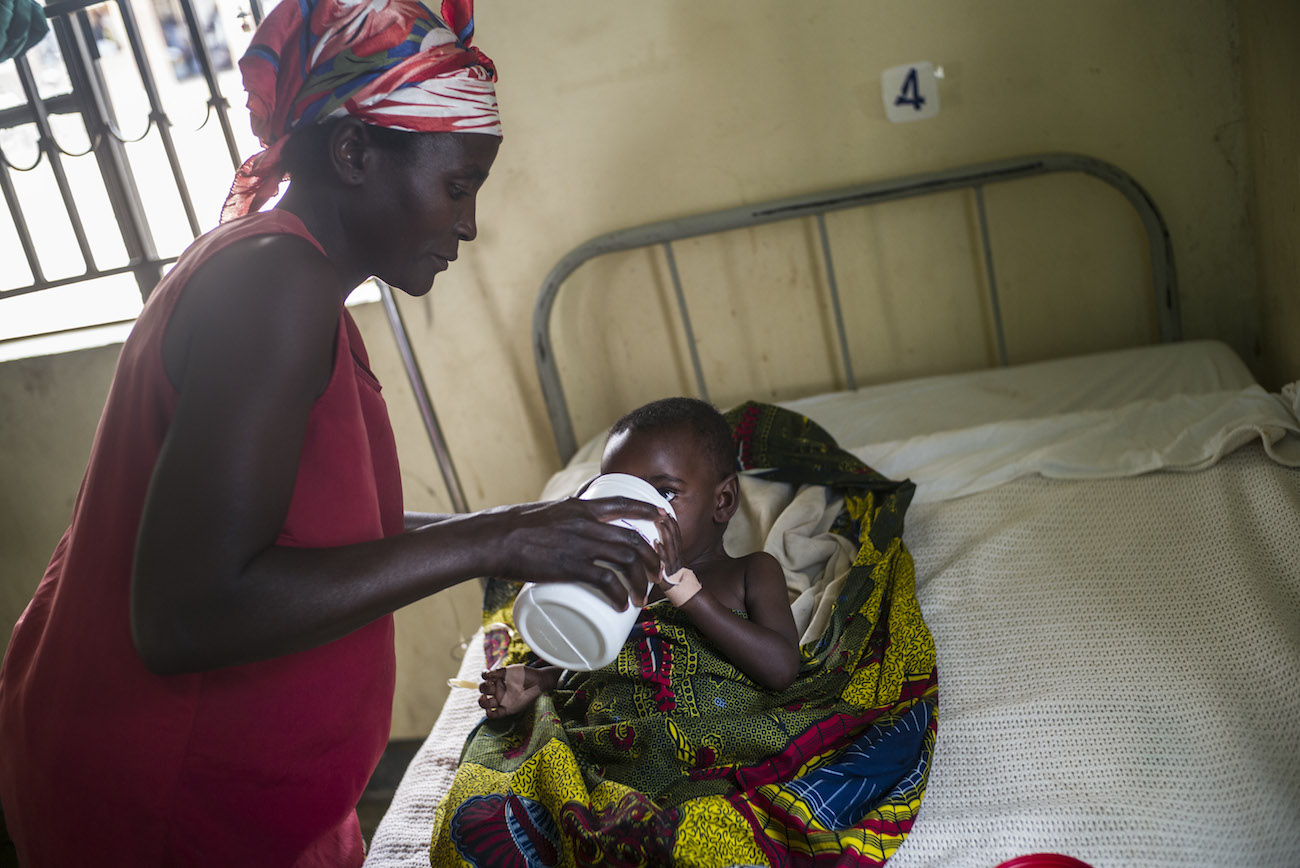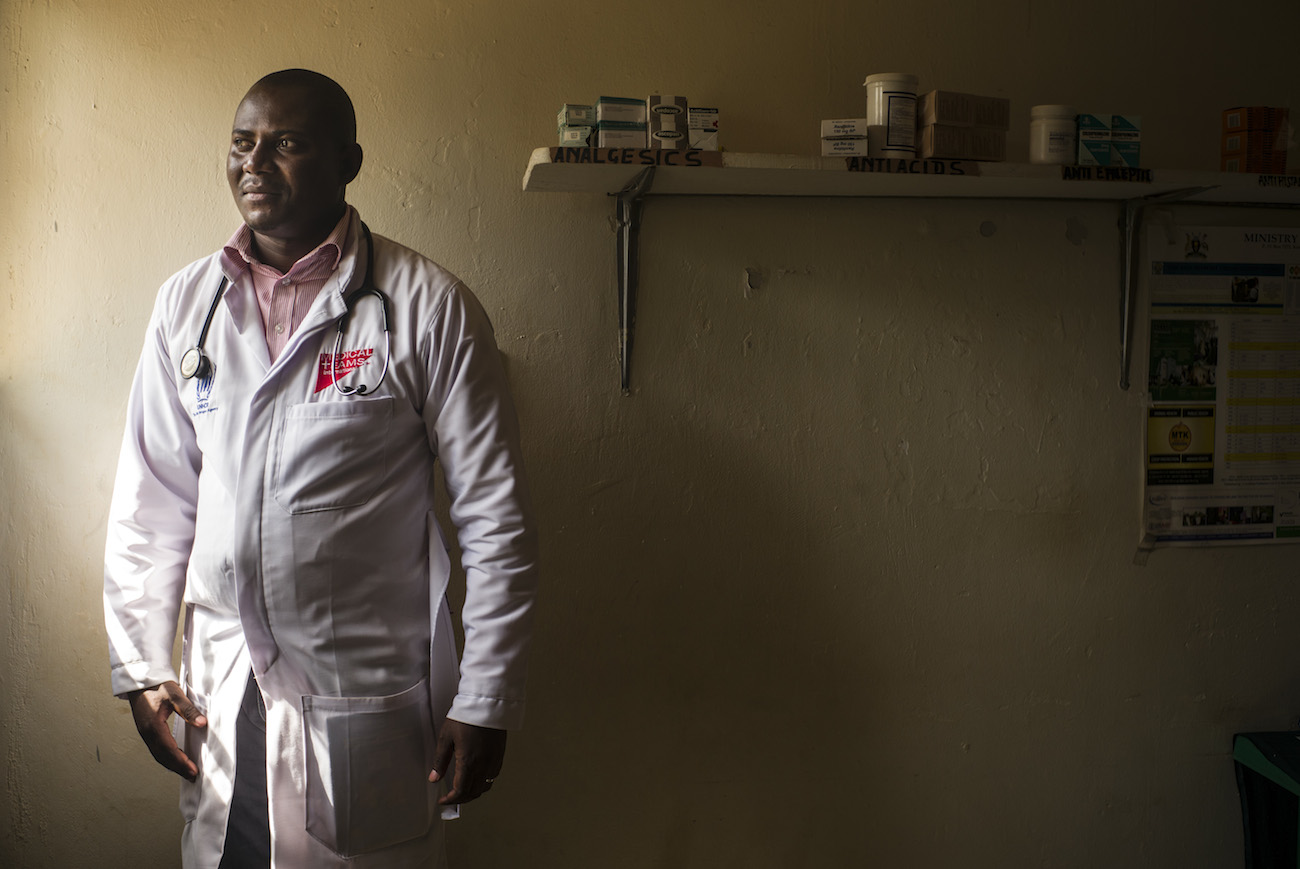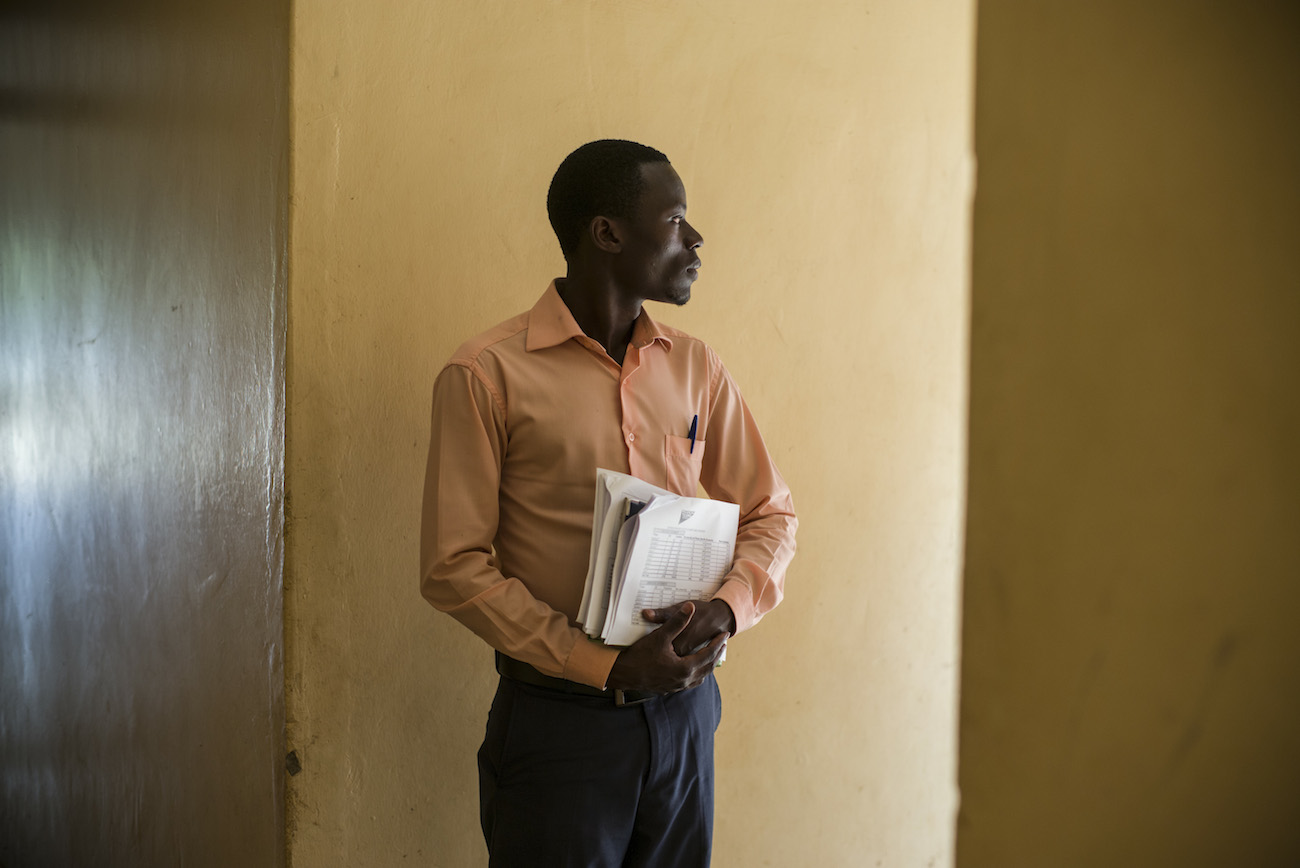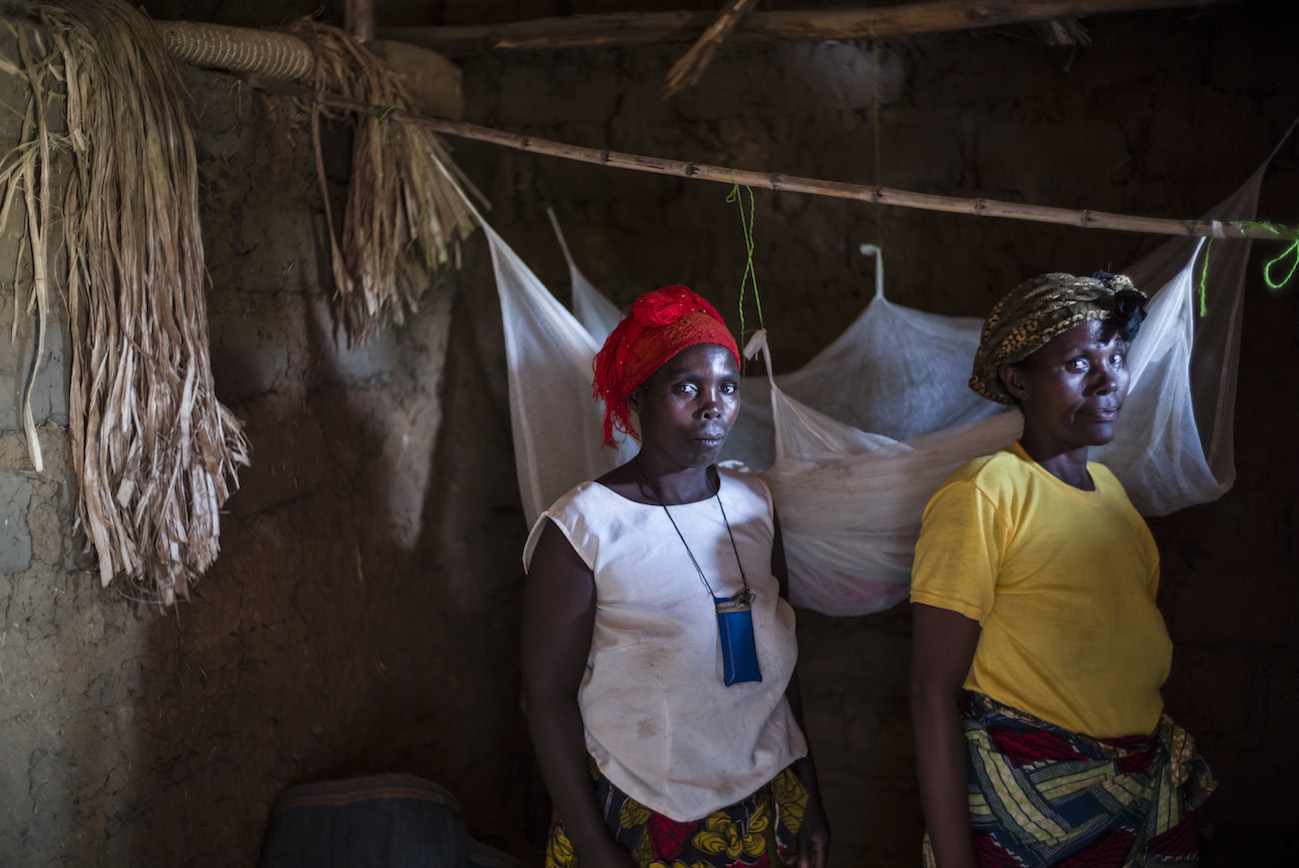Fleeing Bullets, and then Mosquitoes

Fleeing Bullets, and then Mosquitoes
Agness and Flavia are close in age: between 18 and 24 months. Although they come from different families, they share a similar story. Their parents fled conflict in the Democratic Republic of the Congo several years ago and are now raising their children in Uganda's Nakivale refugee settlement. But only one of the two girls sleeps under a mosquito net, and that's where their stories diverge.
Agness, the younger of the two toddlers, is dozing in her mother's arms when I meet her at Nakivale health centre. Inside the consultation room, the diagnosis comes quickly as Agness tests positive for malaria. She is rushed to the hospital ward and given intravenous rehydration serum and quinine. Her eyes roll with relief as the fluid takes effect.
"It's not the first time that Agness has malaria," says Janette, her 35-year-old mother. "Every time I come here, the malaria test is positive. Every time. The other children also have malaria, even myself. We have no mosquito nets at home." She explains that her family received two bed nets upon arriving here in 2008, but both eventually tore and became ineffective.
"It is lucky if I jump one month without me or my family suffering from malaria," says Agness' father, John, 50. "Now it is every month. Malaria is increasing. When it is raining, it increases. When we are sleeping at night, mosquitoes come and bite us."
Between January and March 2015, UNHCR distributed 9,500 new mosquito nets in Nakivale. But funding shortages meant there were not enough for everyone, and Janette's family missed out. Altogether, 45 per cent of the camp's 74,000 residents still don't have a net. This is especially worrying with the approach of peak malaria season, which starts in July after the rainy season.
Christopher Nyolonga, a public health specialist from Medical Teams International, a UNHCR partner in Nakivale, tells me that malaria is the leading cause of illness at the settlement. Last year, he says, the four health centres there treated 67,000 malaria cases. The incidence peaked in July, when 8,000 cases were treated.
"The location of the camp is very conducive to malaria disease," Nyolonga explains, noting its proximity to Lake Nakivale and various nearby swamps where mosquitoes breed.
"There will be a new outbreak of malaria in July," he cautions. "Before the rainy season starts, NGOs have to step in to make sure lives are saved. Refugees are even more vulnerable than the local population. Nationals can still support themselves if the mosquito nets are late, but refugees have nothing."
"Refugees are even more vulnerable than the local population. Nationals can still support themselves if the mosquito nets are late, but refugees have nothing."
A few kilometres away from the health centre, in the village of Rubondo, two-year-old Flavia runs after us in a pretty white dress when we visit her family. She is full of life and wears a big smile. Her mother is cleaning the house and her father is tending to their groundnuts in a garden close by. Flavia is just a few months older than Agness, but sleeps under a mosquito net. Her family received mosquito nets during the most recent distribution in January.
"Malaria was a big problem for the family," says Flavia's mother, Immaculate, 30. "Since we have received the mosquito nets, it is not like before. Before, we were going to the hospital every month, but now not anymore."
Malaria is a deadly disease – but even when treated effectively it can put a huge strain on families. When one of their children is sick, Agness' parents must divide their time between home and hospital. Immaculate typically stays at hospital, while her husband, John, takes care of the rest of the family at home.
"I came here to see how the child is," he says during a visit to the hospital. "I will go back to see the other kids at home. Because their mother is breastfeeding, she will stay here. I will bring the food to the hospital. My kids will help me to cook. The problem is that the kids are asking: 'Where is mummy?' They cry. I comfort them and I say that I am sorry, but their mother is at the hospital with their sister."
"The kids are asking: 'Where is mummy?' They cry. I comfort them and I say that I am sorry, but their mother is at the hospital with their sister."
To reduce the incidence of malaria at Nakivale settlement, the health centres there are enlisting community health workers, often refugees themselves, to help spread the word about prevention.
Dorothée, 54, has been a community health worker here since 2008. She goes to the villages within Nakivale refugee settlement and helps people clean their homes. "I tell them to sweep around their houses, to dig holes to put the garbage in, and I give them advice when they are sick and go with them to the hospital," she explains.
She also emphasizes the importance of bed nets. "I tell people to buy mosquito nets to prevent malaria, but they don't have money. There are not enough mosquito nets. Where we helped people to hang mosquito nets, there is a lot less malaria."
And, she adds, far fewer deaths.
This story was reported with support from the UN Foundation's Nothing But Nets campaign.



















